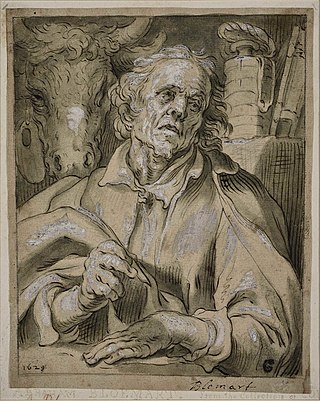Related Research Articles

Adrian is a form of the Latin given name Adrianus or Hadrianus. Its ultimate origin is most likely via the former river Adria from the Venetic and Illyrian word adur, meaning "sea" or "water".

Luke is a male given name, and less commonly, a surname.
Jared is a given name of Biblical derivation.
Einar is a Scandinavian given name deriving from the Old Norse name Einarr, which according to Guðbrandur Vigfússon is directly connected with the concept of the einherjar, warriors who died in battle and ascended to Valhalla in Norse mythology. Vigfússon comments that 'the name Einarr is properly = einheri" and points to a relation to the term with the Old Norse common nouns einarðr and einörð.

Adam is a common masculine given name in the English language, of Hebrew origin.
Bruno is a given name and surname of Old Irish, French, Italian, Latin and Germanic origin. In the Latin languages, it comes from Brunus, An Bru’, Brun, and Brugh; Bruno is a Latin name as well as Germanic (Braun) name composed of the root brun-, which can mean burnished, also present in the words/names braun and brown and Bruno
Xenia is a female given name. The below sections list notable people with one of the variants of this given name.
Bojan is a Slavic given name, derived from the Slavic noun boj "battle." The ending -an is a suffix frequently found in anthroponyms of Slavic origin. The feminine variant is Bojana. The name is recorded in historical sources among Serbs, Bulgarians, Czechs, Poles, Croats, Slovenians, Macedonians, Ukrainians and Russians. In Slovenia, it is the 18th most popular name for males, as of 2010.
Matej is a given name that originates from the Slavic nations of Central and Eastern Europe. It is one of the most common male names in Slovakia and Slovenia, and is also common in Croatia. The name is originally derived from Matthias the Apostle.

Oscar or Oskar is a masculine given name of English and Irish origin.
Irina or Iryna is a feminine given name of Ancient Greek origin, commonly borne by followers of the Eastern Orthodox Church. It is derived from Eirene, an ancient Greek goddess, personification of peace. It is mostly used in countries within the Commonwealth of Independent States and the Balkans.

Anna is a feminine given name, the Latin form of the Greek: Ἄννα and the Hebrew name Hannah, meaning "favour" or "grace".

Oliver is a masculine given name of Old French and Medieval British origin. The name has been generally associated with the Latin term olivarius, meaning "olive tree planter", or "olive branch bearer" Other proposed origins include the Germanic names *wulfa- "wolf" and *harja- "army"; the Old Norse Óleifr ; a genuinely West Germanic name, perhaps from ala- "all" and wēra "true" ; the Anglo-Saxon Alfhere; and the Greek name Eleutherios.
Marko is a masculine given name, a cognate of Mark. The male name Marko is a Roman personal name that comes from the Latin word "Marti-co-s" which is a derivative of Mars, the Roman god of war.

Anton is a masculine given name. It is derived from the Latin name Antonius, and used in various languages. Notable people and characters with the name include:
Ervin is a male given name of Indo-European origin, meaning "green water," "fresh water," "friend of the sea," or "army friend." It is believed to have either originated from Old English or Old Gaelic, referring to its water-related meanings, or from the German language, where it signifies "friend of the army."
Monika is a female name in German, Scandinavian, Czech, Slovak, Polish, Slovene, Croatian, Estonian, Lithuanian, Latvian and Hungarian (Mónika) which can also be seen in India. It is a variation of Monica, stemming from the word "advisor" in Latin and "unique" in Greek.
Ana is a version of the female given name Anna meaning "favour" or "grace".